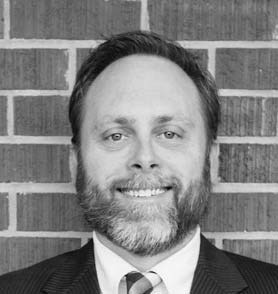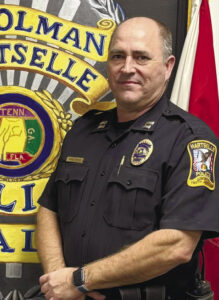COVID roller coaster traumatizes nurses
By Eric Fleischauer
For the EnquirerThe treacherous COVID-19 roller coaster depicted in charts showing rising and falling hospitalization numbers over the past two years has also been an emotional roller coaster for nurses and other healthcare workers, and they have said the latest climb is gut-wrenching.
“To a certain degree, we anticipated we would have new surges,” said Anita Walden, chief nursing officer at Decatur Morgan Hospital, “but as the surge begins, I think we’re all just disheartened and thinking, ‘Here we go again.’”
Decatur Morgan had 48 COVID patients Friday – about half its pandemic peak but more than double the number two weeks ago. Morgan County has averaged more than 200 new cases per day over the past week.
There are hopeful signs — hospitalizations from the omicron variant already appear to be dropping in some parts of the nation and world, and the typical patient hospitalized with omicron has less severe symptoms than previous variants — but for overworked nurses, the misery is tangible.
“Our staff, who have been great, are still working a lot of overtime, which bothers me,” said Kelli Powers, president of Decatur Morgan Hospital. “We’ve got people working at least 48 hours a week or more, up to 60. That’s a lot for nursing … The morale is really down.”
Walden said 83 staff members were in quarantine as of Friday, increasing the burden on those who remain.
“They are working hard and praying they don’t come down with it themselves,” she said.
EXPERIENCING DEATH
Nurses go into the profession knowing they will experience death, Walden said, but few were prepared for what they’ve experienced with COVID.
“We normally expect it to be in the elderly. We expect it to be in the random ones that are in an accident of some kind, and certainly those with chronic conditions – but to see so many that came in that didn’t have those things, but they were dying, that’s hard,” she said.
“The other thing is that even with chronic conditions and the old, you don’t have a death every day. During COVID season, we were not only having one a day, we were having multiple a day.
“You’re not only dealing with the death; you’re dealing with the family,” she added. “You’re dealing with trying to help them prepare for that death. You are having to sometimes be the only one with the patient when they die. That’s a lot to take on your shoulders.”
Dealing with death is always tough for nurses, Walden said, but dealing with it over and over can be devastating.
“As a nurse, you can’t help but connect with your patients. You’re in the most intimate setting with them. They depend on you. You are their lifeline. They’re depending on you for everything. You really develop a bond. When you have a dying patient, that bond is there,” she said. “Somehow you have to try to compartmentalize that. During COVID, you barely get one patient out of the bed until you’re rolling in the next one to take their place.
“So what do you do with all those emotions? You shove them inside somewhere, and you shore up for the next one.”
On top of the emotional toll that comes with work, nurses are dealing with the trauma at home that few people have escaped during the pandemic.
“We hear stories of it being difficult at home,” Walden said. “They’re still trying to have some normalcy in this completely not-normal world we’re living in right now.
“A lot of them had children that were virtual with school, so they felt the burden of trying to help them learn at home, and husbands who were affected as well at their own workplace. I don’t know statistically how many of those had marriage issues in the midst of things, how many relationships suffered, but I would imagine that toll is high.”
The pressure of balancing work and caring for their own children escalated again this month for many as Decatur City and Lawrence County schools – faced with rampant infection among staff and students – announced they would be going virtual until at least Jan. 24. Hartselle City Schools first went virtual Jan. 14-19 but extended that through the remainder of this past week, with plans to return to in-person learning Monday.
In one sense, this is a good thing for the hospital, in that it limits the virus’ spread. “Those little children are bringing (the virus) home to their mommies and daddies who happen to work at the hospital,” noted Walden. On the other hand, she said having children at home also adds to an irrational sense of guilt carried by many nurses.
That guilt starts at work.
“We’re here to heal. We’re here to help cure. We want to send patients home better than they came to us,” she said. “Not being able to do that is probably one of the hardest things that we do – knowing that you’ve done your best, and you’ve failed.”
“RHYTHM IS OFF”
To that sense of guilt, add the frustration of not being the parent or spouse they want to be.
“You kind of want to keep all the plates spinning,” Walden said. “When one falls, and then another one and maybe even another one, the rhythm is off. Your confidence is shaken.
“If you don’t have plenty outside of your job to keep you grounded and to recharge you, that does not lend itself to a healthy mental state at all.”
As nurses deal with life-and-death struggles at the hospital, they can’t escape the political climate that surrounds COVID-19.
“I think when we hear people making this a political issue, that hurts. It almost feels like people don’t know – they don’t care,” Walden said. “That might not be how they feel at all, but when you’re in the trenches, all the battling and bickering back and forth – We don’t care about the political stuff. We care about saving lives, keeping people healthy.”
The COVID roller coaster has not just taken a personal toll on nurses; it has contributed to severe nursing shortages at Decatur Morgan and other hospitals.
“It is said that 20 percent of the healthcare workforce has now left healthcare nationwide,” said Dr. Don Williamson, president of the Alabama Hospital Association and former state health officer. “A lot of that is due to burnout, and it’s going to take years to replace that.”
Decatur Morgan and Athens-Limestone hospitals are not exempt from the trend.
“We’ve had a fair amount of people retire or choose to do something else,” Powers said of Decatur Morgan. “That’s hurt us. We’ve had several of them who were close to retirement that said, ‘Hey, I’m done. I can’t do it anymore.’”
Max Tunstill, chief nursing officer at Athens-Limestone, said he sees the same thing.
“It’s really hard on them. You feel like you see the light at the end of the tunnel, and things start to get better, but then when things come back like this, and having all the staff out, the staff is tired,” he said. “I would definitely say there has been an increase in turnover, and there’s been an increase in burnout, just because of the amount of death and things like that we’ve seen.”
Is the roller coaster of COVID hospitalizations coming to an end anytime soon? Experts are not particularly optimistic, unless vaccination rates increase substantially.
Alabama’s vaccination rate is the second worst in the nation. Vaccination rates in Morgan, Limestone and Lawrence counties are all below 45 percent.
“It’s a situation that can lead to frustration and burnout,” said assistant state health officer Karen Landers. “We may be through with COVID, but COVID’s not through with us.”
ADDRESSING BURNOUT
What’s the answer to the toll the pandemic is taking on healthcare workers? Walden said she believes it involves more attention to the emotional burden carried by those charged with healing others.
“I think that we need more help – more mental health help – for healthcare workers,” Walden said. “I talk about nurses a lot, but it’s also our physicians, our respiratory therapists, our lab personnel. Their mental health is in jeopardy, and I’m not sure what the answer is – how to help that.
“I think as a nation, as a state, we have got to put some money into the mental health of our healthcare workers.”
She said the national approach through the pandemic has been to throw money at the healthcare system.
“Money goes only so far. People need to feel valued,” Walden said. “They need to know their hospital cares about them, that their community cares about them – that they matter.
“I was just reading in the paper that Gov. (Kay) Ivey wants the legislature to use the relief finds wisely. I agree – and a big portion of that has got to be in helping healthcare, helping physicians, helping mental health do some things that give us a reason to stay in healthcare.”
Some of the solution for nurses, she said, must involve self-reflection.
“We have got to get back to the basics of why we chose healthcare,” she said. “We want to help people. We’ve got to figure out, how can we help people? And we’re people, too, so how can we help us?”
Walden said she routinely engages in that self-reflection.
“I don’t want to come across as gloom and doom,” she mused. “I think I’m an eternal optimist. I think we can beat this. I think we can come back better than before.
“I think it opened our eyes to a lot of things,” she added. “I think we’ll come to the end of this pandemic and have a different perspective on what’s important. People are important; they’re very important.
“I could get all depressed and think, ‘Oh my goodness, why am I in healthcare?’ But why not? I loved it when I came into it. I still do.”
It’s a love that has been challenged but not vanquished.
“It’s frayed, but it’s still there,” she said. “I appreciate our team. I appreciate our physicians. It’s been a long two years, but we’re still good. We’re still kicking.”









